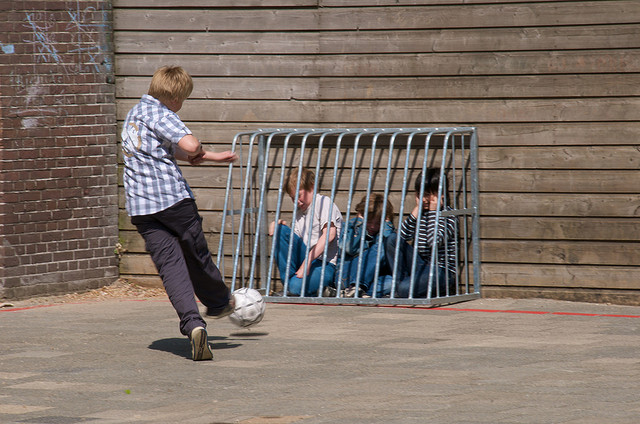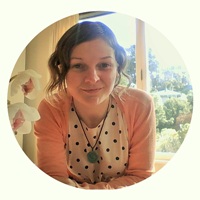Words had the power to convince me I was dying more than once.
They had the power to make everything go black—to suck all the air out of my chest. They had the power to make me flinch in anticipation of physical force—even when the force itself seldom came.
I’m glad I wasn’t physically abused as a child, but what no one could see was the emotional damage, the trauma, that led to depression and feelings of brokenness. It took me years to even realise this, and decades to process to the point where I can really talk about it.
I didn’t realise at the time, but the pain that I experienced, from psychological bullying and teasing in my childhood, was much like physical pain. Scientists have been discovering more and more connections between emotional and physical pain. There is a widespread understanding that both kinds of pain activate similar regions of the brain, yet the way Western society treats emotional and physical pain is very different. Physical pain is met with serious concern whereas emotional pain is dismissed, just as my feelings were.
Our dominant social attitudes to psychological suffering reflect our society’s bias towards the physically measurable, the visible, the mechanistic. We can see and count and measure physical trauma far better than emotional pain. The psyche is still so very mysterious that it is safer just to ignore it and pretend only the objective world exists; we do so at our own peril.
Intergenerational trauma continues and cycles of violence, addiction and other social pathology proliferates. We go for easy fixes—band-aids, punishing the people labelled as bad, ambulances at the bottom of the cliff and denial of real issues. We continue to choose the easier options rather than addressing this massive collective mess of trauma—of our broken system. We need to face our darkness, in order to heal.
As I write this, I sit in this quiet café, trying to organise my life as things are changing fast. I can handle this, I realise, and a too-familiar childhood taunt comes back to haunt me, repeated over and over again in that typical teasing na-na-na-na-na-na tone. I didn’t used to be able to handle this kind of teasing. It reduced me to tears along with other specialised nasty nicknames, threats of violence…anything that stripped me of power. It seems so trivial, but it felt so awful. These simple words had the power to pick me up by my chest—by a single vulnerable thread—and smash me around, stripping me of every last shed of integrity.
Sticks and stones may break my bones…but words hurt me so much more.
Words had power to go deep into my psyche, to take away my power over myself—to control and crush me. Being told to “harden up,” being teased for crying only brought out my inner victim. It never did what was intended, in fact, just the opposite. I was reduced to worse than worthless. My value was inverse. This emotional verbal abuse was just normal. No one knew how much it hurt, except me. It was trivialised, because how could someone with so little worth have pain of any consequence?
Kids that are easily teased, are highly sensitive. They are not trying to annoy you with their crying. These noises are a response to pain. They don’t know how else to respond. It is automatic, as is the rising anxiety in our chests when we start to lose control over ourselves. Inside, I’m still that kid.
Trivialising someone’s pain takes away their ability to validly talk about it and process it; it takes us one step further into the dark unreachable corners of the psyche. Hidden wounds don’t go away—they fester—and pain, all pain, is felt in the mind. Neurologists are just beginning to unravel the complex connectedness of physical and emotional pain. For so much of my life I was cast as a victim. I didn’t want to be, but there was no place for this suffering. No one wants to be a victim and no one wants to suffer if there are better options.
Trauma may work in different ways for different people. For me it impacted, like an injury under further strain, so that any pressure could trigger it and add to the pain and damage. Anything could exacerbate the wound. I was not safe at home. I was not safe at school. The smaller incidents could be brushed off, sometimes. I forgot some things quickly enough, but other kinds of bullying hung over me and followed me wherever I went. I had no options; I had no hope. This emotional trauma caused decades of depression and anxiety, which as a child, I had no language to describe. To heal, I have had to peel back layers of denial and shame, to give voice to silenced feelings, to untangle psychological wounds, and to release deep wells of stored emotion.
I wipe the tears from my face, relieved that no one is watching, relieved that I can cry silently, and relieved that I can cry at all when it is so rare for me now. Teasing is such a light-hearted word, emotional abuse sounds a lot more dramatic, but that is what it felt like. Taunts which ached like torture, and threats of physical violence, were continuous. They were the way my step-father learned to control us; this is what he learned from his much more physically violent up-bringing, and my siblings and I learned the same patterning from him. We were all victims of intergenerational trauma, of colonisation, of war-trauma, and of a violent system of alienation. Probably, everyone is.
Relephant:
Reflections on Being the Bully & the Bullied.
~
Author: Isa Ritchie
Editor: Travis May
Photo: Flickr/Thomas Ricker







Read 0 comments and reply